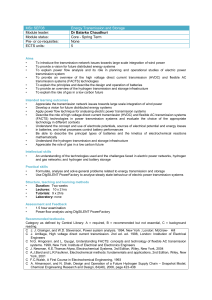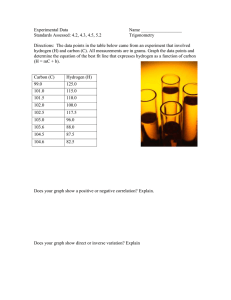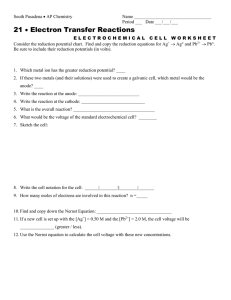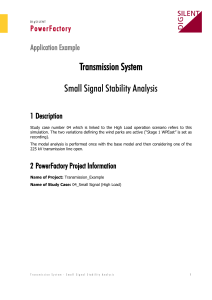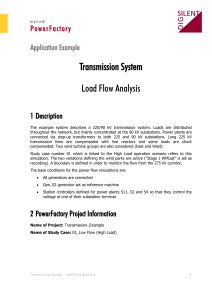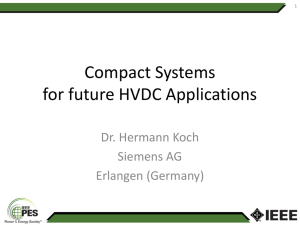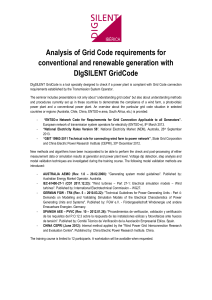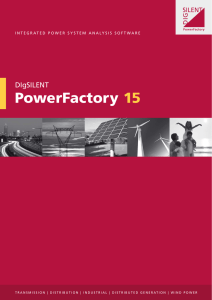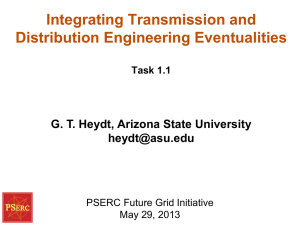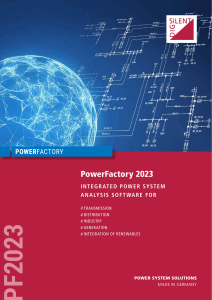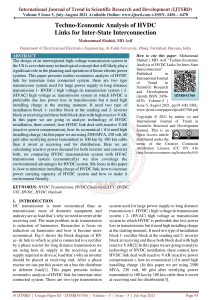MSc SEF08 - Workspace
advertisement
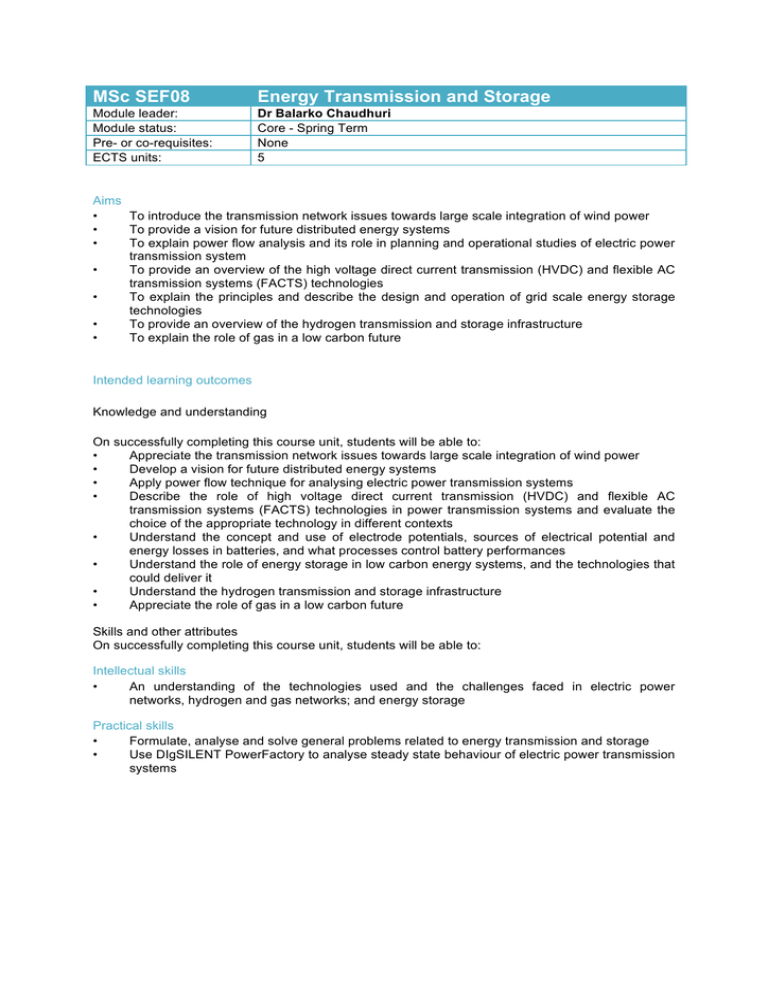
MSc SEF08 Energy Transmission and Storage Module leader: Module status: Pre- or co-requisites: ECTS units: Dr Balarko Chaudhuri Core - Spring Term None 5 Aims • To introduce the transmission network issues towards large scale integration of wind power • To provide a vision for future distributed energy systems • To explain power flow analysis and its role in planning and operational studies of electric power transmission system • To provide an overview of the high voltage direct current transmission (HVDC) and flexible AC transmission systems (FACTS) technologies • To explain the principles and describe the design and operation of grid scale energy storage technologies • To provide an overview of the hydrogen transmission and storage infrastructure • To explain the role of gas in a low carbon future Intended learning outcomes Knowledge and understanding On successfully completing this course unit, students will be able to: • Appreciate the transmission network issues towards large scale integration of wind power • Develop a vision for future distributed energy systems • Apply power flow technique for analysing electric power transmission systems • Describe the role of high voltage direct current transmission (HVDC) and flexible AC transmission systems (FACTS) technologies in power transmission systems and evaluate the choice of the appropriate technology in different contexts • Understand the concept and use of electrode potentials, sources of electrical potential and energy losses in batteries, and what processes control battery performances • Understand the role of energy storage in low carbon energy systems, and the technologies that could deliver it • Understand the hydrogen transmission and storage infrastructure • Appreciate the role of gas in a low carbon future Skills and other attributes On successfully completing this course unit, students will be able to: Intellectual skills • An understanding of the technologies used and the challenges faced in electric power networks, hydrogen and gas networks; and energy storage Practical skills • Formulate, analyse and solve general problems related to energy transmission and storage • Use DIgSILENT PowerFactory to analyse steady state behaviour of electric power transmission systems Recommended textbooks Category as defined by Central Library: A = required, B = recommended but not essential, C = background reading. C J. J. Grainger, and W.D. Stevenson, Power system analysis. 1994, New York ; London: McGrawHill C J. Arrillaga, High voltage direct current transmission. 2nd ed. ed. 1998, London: Institution of Electrical Engineers C N.G. Hingorani. and L. Gyugyi, Understanding FACTS: concepts and technology of flexible AC transmission systems. 1999, New York: Institute of Electrical and Electronics Engineers C J. Newman, K.E.Thomas-Alyea, Electrochemical Systems, 3rd Edition, Wiley, New York, 2004 C A.J.Bard and L.R.Faulkner, Electrochemical methods: fundamentals and applications, 2nd Edition, Wiley, New York, 2001 C F.C.Walsh, A First Course in Electrochemical Engineering, 1993 C A. Almansoori, and N. Shah, Design and Operation of a Future Hydrogen Supply Chain – Snapshot Model, Chemical Engineering Research and Design, 84(A6), 2006, page 423-438 Structure, teaching and learning methods • Duration: Two weeks • Lectures: 10 x 2 hrs • Tutorials: 9 x 2hrs • Laboratory: none Summary of student timetabled hours Autumn Lectures Tutorials Lab exercise Total Expected private study time Spring Summer 20 18 38 2-3h per week, exam revision Staffing for timetabled activities Staff this session Total contact (estimated, h) Autumn Lecture Lecture Lecture Lecture Lecture Lecture Associate lecturer BC NB GS NS SM TCG RAs Spring Summer 8 4 6 4 2 2 16 Assessment and Feedback Assessment type Written examinations: title, duration and rubric Coursework (including progress tests, oral presentations etc.) Total 3 out of 4 questions to be answered Each question carry 25 marks Power flow analysis using DIgSILENT PowerFactory Date (approx.) / submission date Max. mark April/ May 2015 75 February 2015 25 100 Pass mark 50
